Mariah was born on March 27 in Huntington, Long Island, New York as the child of an interracial couple. (Interracial marriage was illegal in some American states until 1967, years after her parents married.) Her mother, Patricia Hickey, was an Irish American opera singer and vocal coach, and her Afro-Venezuelan father, Alfred Roy Carey, was an aeronautical engineer. The Hickey family disapproved of Patricia and Alfred’s relationship, which caused a painful, lasting strain on the marriage.
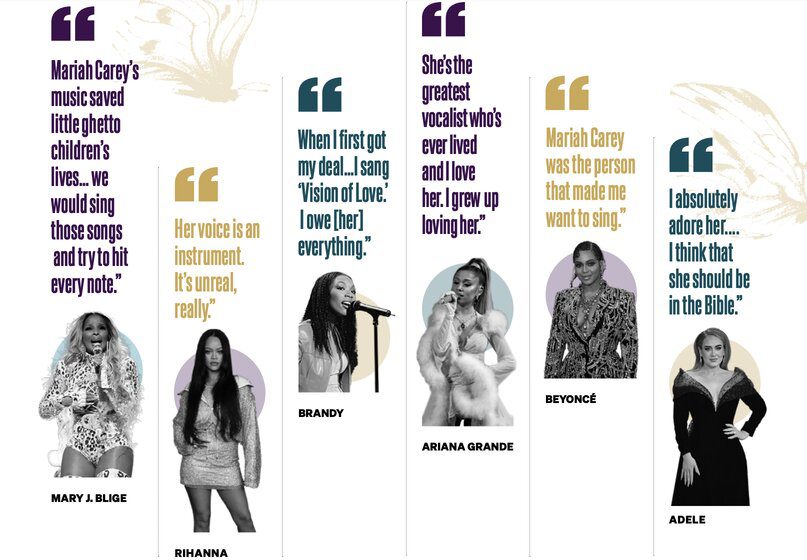
Mariah, the youngest of three children, was just three years old when her parents divorced. During her tumultuous childhood, she would sometimes self-soothe by humming melodies to herself. Whenever her mother sang, Mariah would mimic her with perfect pitch and tone. Patricia soon took notice, and by age four, Mariah was receiving voice lessons. Patricia also exposed her daughter to an array of genres, starting with jazz.
By age four, Mariah was receiving voice lessons.
Melisma
Music became a way for Mariah to express herself, and it quickly turned into an obsession, baffling her teachers. Immersing herself in jazz, R&B, pop, rock ’n’ roll, and hip-hop, as well as classical and opera, Mariah unlocked a five-octave vocal range and developed an otherworldly talent for melisma (when a group of notes is sung to one syllable of text).
Melisma: When a group of notes is sung to one syllable of text.
Her burgeoning skills—and formidable work ethic—impressed an aspiring songwriter from Chicago, Illinois, named Gavin Christopher. At the age of fifteen, Mariah set her intention to write and perform her own songs, and not long after she and Christopher launched a creative partnership.
Her writing flourished, and she began commuting to Manhattan to book jobs with other musicians while she was still in high school. Soon, she landed a gig as a backing vocalist with New York-–based R&B singer Brenda K. Starr.
The Break
Starr’s mentorship led to a chance meeting with Tommy Mottola—an executive with Sony Music Entertainment, the parent company of Columbia Records—at an industry party in November of 1988. It was there he plucked Mariah’s demo tape, intended for another executive, out of her hands. The moment would prove life-changing. Then just eighteen years old, Mariah was already considering a deal with American entertainment behemoth Warner Bros. to create a soundtrack for the film Lean on Me, starring American actor Morgan Freeman. Suddenly, she found herself in the middle of a bidding war.
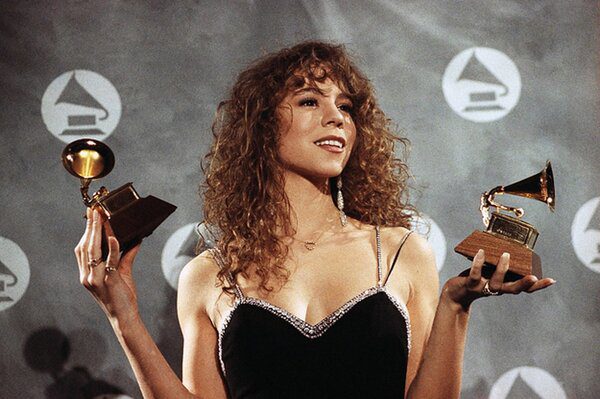
The Breakthrough
In December 1988 she opted for Columbia, which released her self-titled debut album a year and a half later. The record was a runaway success, landing at No. 1 on the Billboard 200 chart (Billboard is America’s most prominent tracker of popular songs); selling twelve million copies worldwide; producing four chart-topping singles, and earning Grammy Awards from America’s Recording Academy in the categories of Best New Artist and Best Pop Female Vocal Performance (for the single “Vision of Love”).
Mariah pioneered the fusion of hip-hop, pop, and R&B, opening up new vistas of crossover collaboration.
Accolades
- She’s been nominated for thirty-four Grammy awards and won five.
- She is the first-ever artist to top the Billboard Hot 100 chart in four separate decades.
- She’s had nineteen No. 1 hit singles (the most ever by a solo artist), co-writing all but one of them.
- In 2019 she was the recipient of the Billboard Icon Award; the following year she was inducted into the Songwriters Hall of Fame (an American organization that celebrates English-language songwriting).
- And in December 2021, her holiday song “All I Want for Christmas Is You” hit one billion plays on the music streaming service Spotify.
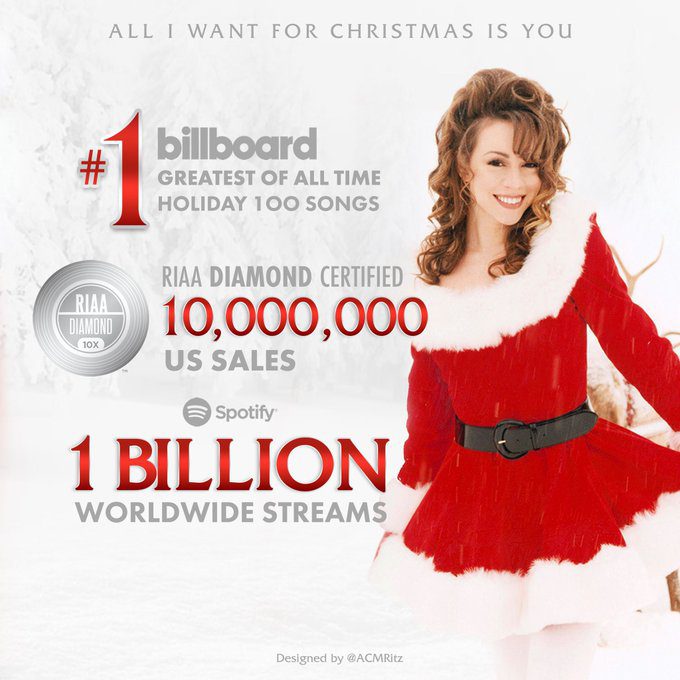
The Elements of Music
The majority of musical expression includes three basic elements: melody, harmony, and rhythm. (Sung music brings a lyrical element; others include timbre and volume.)
Melody
Melody consists of two primary subcomponents: Pitch refers to the frequency of a vibration needed to produce a given note; rhythm refers to the duration and placement of these pitches—their division into lengths such as whole notes, half notes, and quarter-note triplets.
Mariah often layers her melodies and harmonies.
Harmony
Harmony, the simultaneous articulation of multiple notes, is typically analyzed as a series of chords. With sung music, the lead vocal line usually covers the melody and the backing vocal lines use harmony to support it.
Rhythm
Rhythm, the pattern of emphasis and silence, is a concept that can be applied to vocals and melodic instruments as well as percussion instruments. In music theory, rhythm refers to the recurrence of notes and rests (silences) in time. In addition to indicating when notes are played, rhythm stipulates how long they’re played.
Mezzo-Soprano: A vocal range that falls between soprano and alto and is the second-highest vocal type.
Anatomy of a Song
Intro
A good introduction catches the listener’s attention.
Verse
The verse is a chance to tell a story. Some songwriters use the second verse as an opportunity to change or subvert the meaning of the chorus (or even the entire song).
Chorus
The chorus is the culmination of all the song’s big ideas—a summary of what the entire song is about. (A pre-chorus, although optional, can heighten the impact of the chorus.) The chorus can also contain the hook— the catchiest part of the song.
Bridge
The bridge, which typically happens only once, toward the end of a song, is a change of pace that stands out both lyrically and musically.
Outro
An outro should signal clearly to the listener that the song is coming to an end.
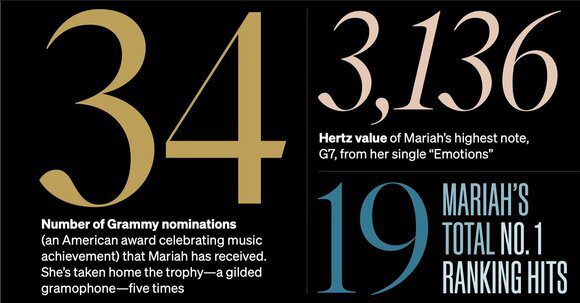
Interpolation
Interpolation is a way to reference songs without a direct sample. This means recreating the melody or another element of a composition note for note instead of using the original recording.
Vocal Stacking
The process of layering individual background vocal lines to give the song a lush and full sound.
Legato
Music performed or written. Legato is smooth and connected with no silence from note to note.
The Music Business
Master Recordings
A master recording (or master) is the original recording of a piece of music, such as a song or album, stored in a variety of data formats, from analog tape to compact disc to digital files. The owner of a master can claim revenue from that recording by granting licenses to third parties who want to use it. These third parties include film and television producers, advertising companies, and streaming services.
Publishing
Music publishers secure royalties for songwriters whenever their music is performed or reproduced; they do this in exchange for partial or complete ownership of the work.
360 Deals
With 360 deals, the record company participates in the income of all aspects of the artist’s work, including touring and merchandise, in addition to their records.
Touring
Given the music industry’s streaming-focused business model, touring forms a giant percentage of an artist’s responsibility and represents a large revenue source. There are many factors that go into making a tour successful, including promoters, managers, technicians, festivals, and the venues themselves.
Albums
- Mariah Carey (1990)
- MTV Unplugged (1992)
- Merry Christmas (1994)
- Daydream (1995)
- Butterfly (1997)
- The Emancipation of Mimi (2005)
- Caution (2018)
Major Collabs
- “Fantasy (Bad Boy Mix)” FEATURING OL’ DIRTY BASTARD
- “Honey (Bad Boy Remix)” FEATURING MA$E AND THE LOX
- “When You Believe” WITH WHITNEY HOUSTON
- “Heartbreaker” F E AT U R I N G JAY-Z
- “Giving Me Life” F E AT U R I N G S L I C K R I C K AND BLOOD ORANGE
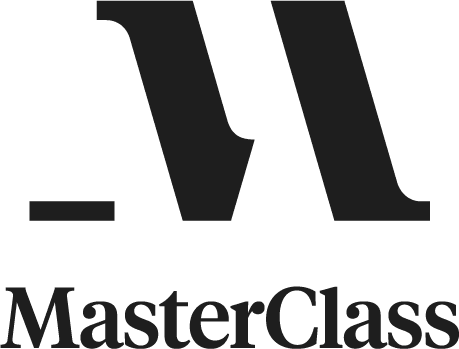
MasterClass is a streaming platform that makes it possible for anyone to learn from the very best. MasterClass is an online membership – accessible on your phone, web, Apple TV, Roku devices, and Amazon Fire TV – that offers classes on a wide variety of topics taught by 90+ world-class masters at the top of their fields.
Their immersive learning experiences combine incredible video content, downloadable materials, and social interaction with the MasterClass community, all of which users can explore at their own pace.
The annual membership is available for $180 USD, which allows unlimited access to ALL on demand MasterClass content for the year
Give One Annual Membership. Get One Free.
All the best in your quest to get better. Don’t Settle: Live with Passion.
For More Information: MasterClass Home Page
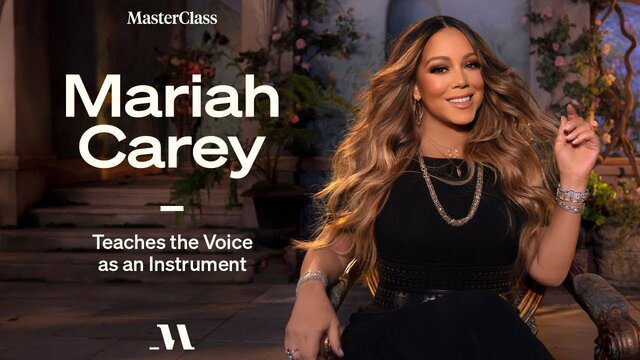
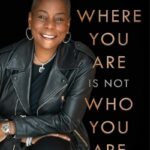

Comments are closed.